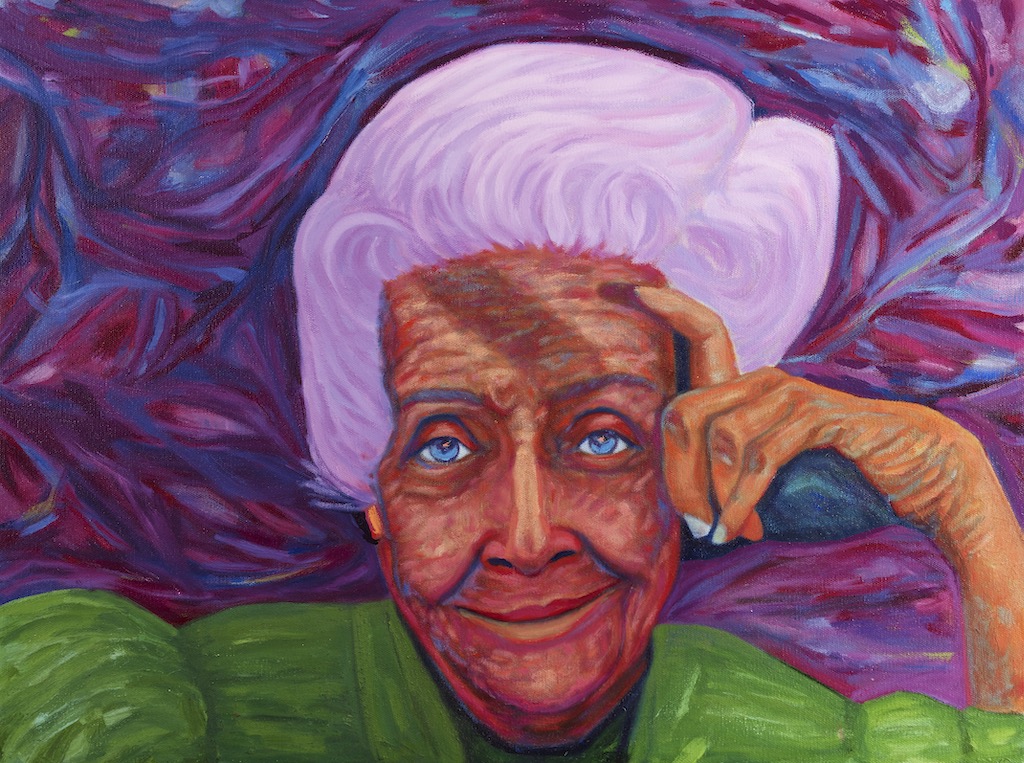Jennifer Mondfrans
Thematic Painter
Rita Levi-Montalcini
- Neurobiologist
- 1909-2012
- oil on canvas
- 24" x 18"
Dear You,
If I had not been discriminated against or had not suffered persecution, I would never have received the Nobel Prize.
From early childhood, I resented that women were reared in such a way that everything was decided by the man. My girls’ high school education was to graduate to marriage, not university. That annoyed me so much that I decided to never do as my mother did. And it was a very good decision–at that time, I could never have done anything in particular if I had married.
By 1939, my native Italy was ruled by the fascist Mussolini who forged his alliance with Hitler. I left the university, fearing for my non-Jewish colleagues who risked their lives by letting me study. I was offered to study in Belgium, but I couldn’t bear to leave my family behind. In 1942, we fled to the countryside where I immediately established a laboratory in my bedroom. As the bombs dropped during those years, I lugged my heavy microscope and slides to safety in the basement over and over.
You never know what is good, what is bad in life. In my case, it was my good chance. I convinced farmers I needed eggs for my children (which I did not have) and instead studied how embryonic nerve tissue differentiates into specialized types. The theory was once a limb bud was excised, it could no longer call out to the nerve cells. In my study, I reasoned that the limb did not contain an organizing factor, but rather produced something that nourished already specialized nerve cells.
After the war, my research brought me an invitation to teach at University of Washington in St. Louis where Stanley Cohen and I discovered that nerve growth factor is produced in salivary glands in mice. By designing an antiserum, we were able to chart the role of the factor. It became clear that it is essential to the differentiation and health of nerve cells and offered a new way to study and understand disorders of neural growth, like cancer, or of degeneration, like Alzheimer’s disease. For this, we shared the Noble Prize in 1986.
I lived until I was 103, the oldest of the Noble laureates. My longevity was due to my continued curiosity. At 84, I began studying the role of nerve growth factor in the immune and endocrine systems– doing something entirely different in the same spirit as when I was young. It is my belief in my capacity that my knowledge continued long after success.
Love,
Rita


